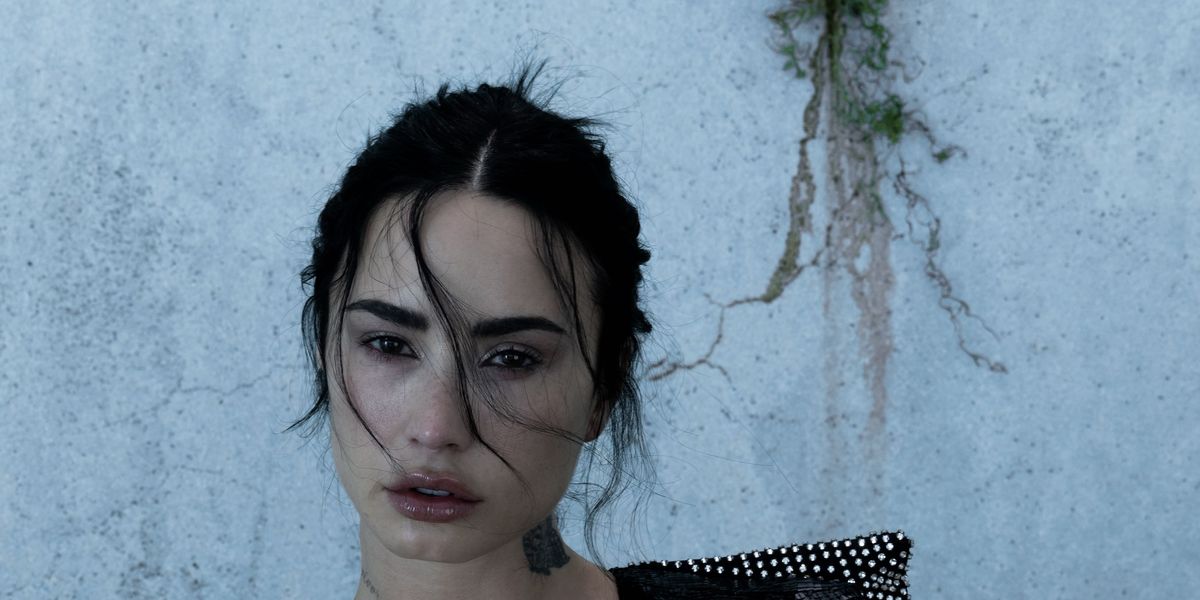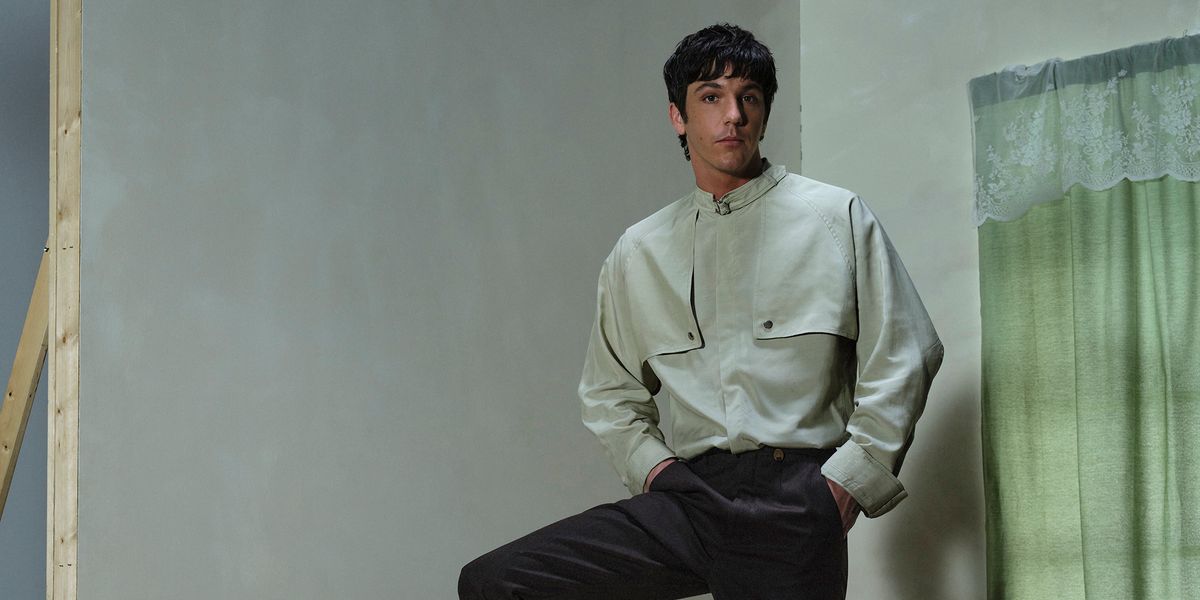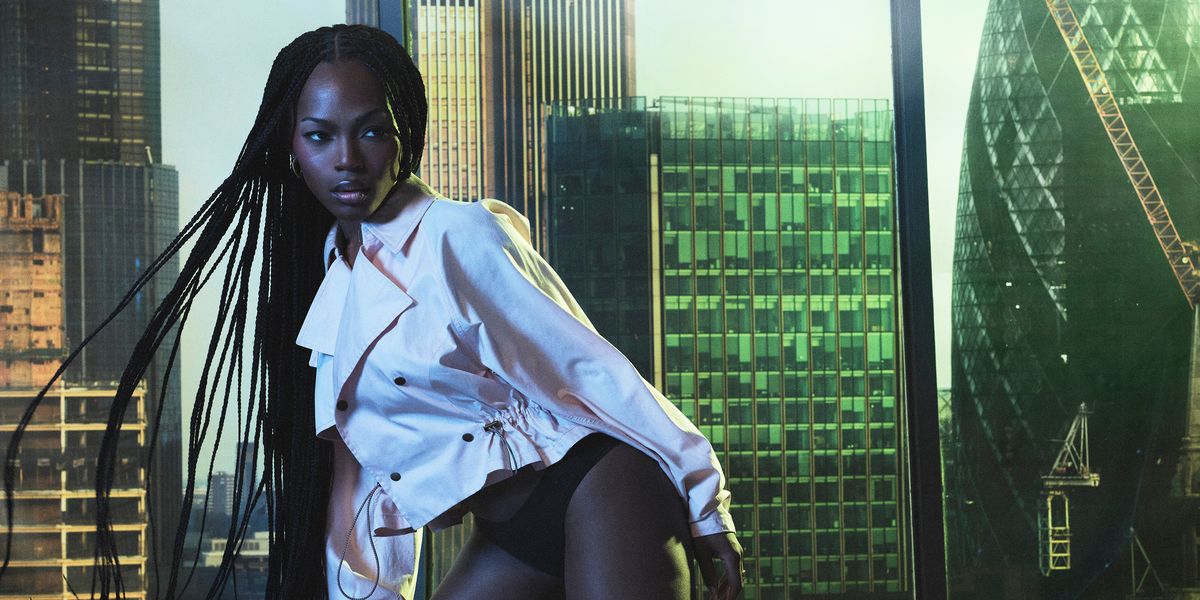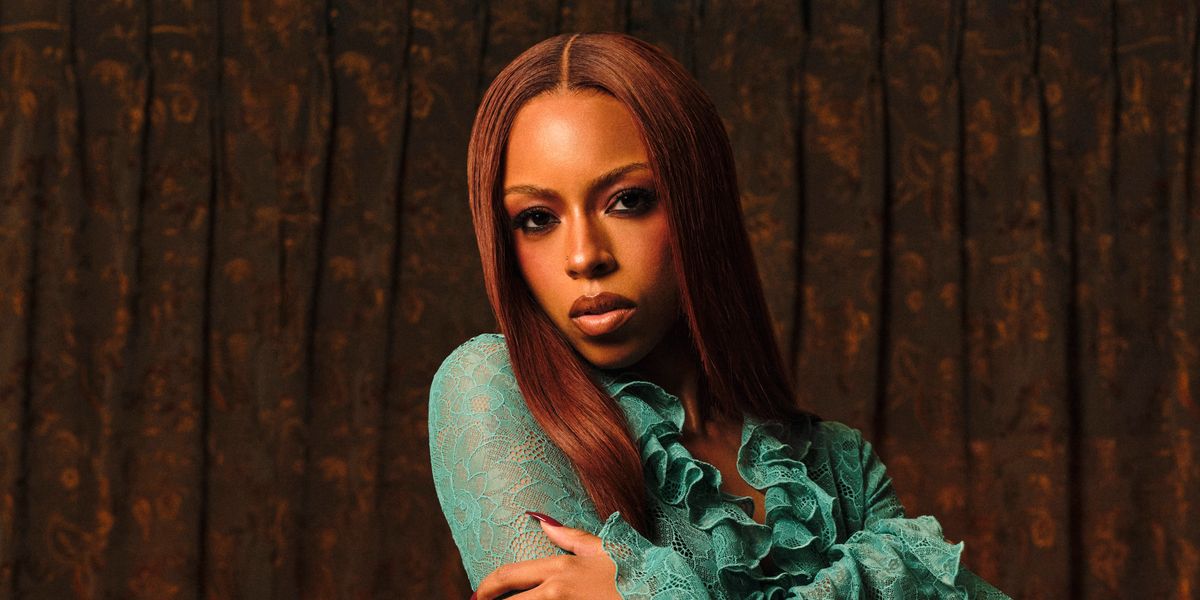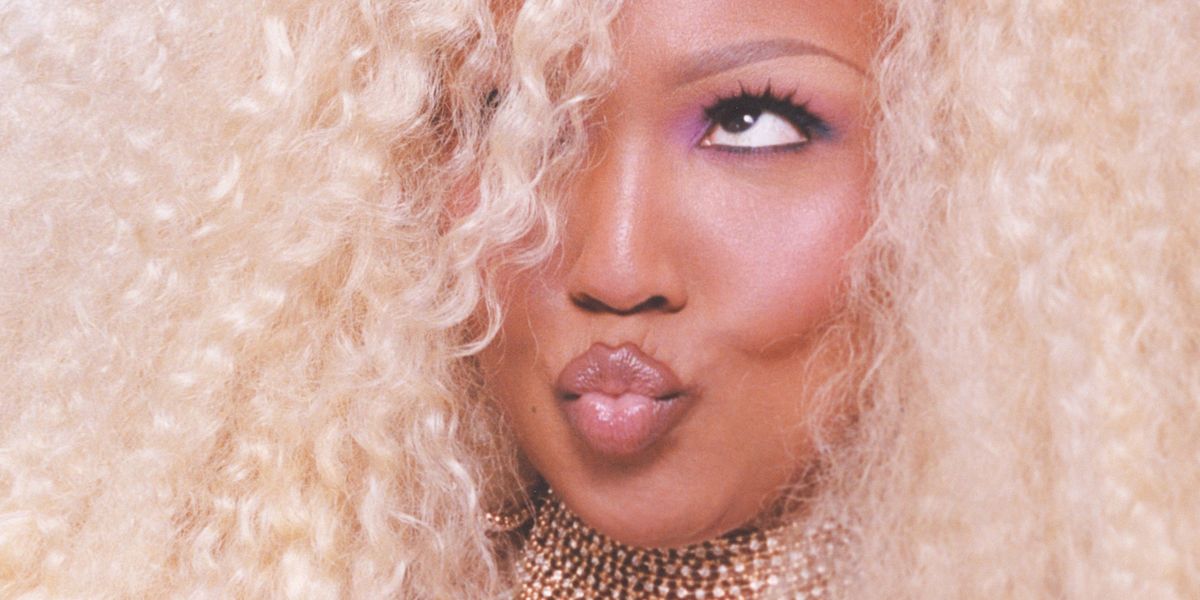
Tanner Devore, Social Media's Hometown Hero
By Tobias Hess
Apr 25, 2025“Everyone relates to that idea of making a show in their living room with stuffed animals and flashlights,” social media superstar Tanner Devore tells PAPER, reflecting on the DIY style behind his TikTok cinematics.
His videos — sound effect-heavy skits in front of an ever-changing green screen — are equal parts absurd and comforting. In under 15 seconds, he turns something as common as a childhood moment with the car radio into a slapstick mini-movie, delivering his humor with the immediacy of your funniest old friend telling you a story.
Devore’s internet skits have become true internet canon. Whether spotting Nosferatu on Tinder, being the “feral friend,” or laughing in a “Saw trap,” he always manages to find the relatable within the surreal, combining a stand up comic’s observational ethos with the frantic, bit-based humor of his favorite childhood TV shows, Looney Tunes, Scooby Doo and SpongeBob SquarePants. “[I loved the] quick joke humor. I had undiagnosed ADHD back in the day, so that’s where my comedy interest came from,” he smiles.
Behind the chaos and giggles, though, is a methodological approach. “I film in my bathroom because I love the lighting there. It’s not too harsh, not too dark: balanced,” he shares, speaking with the seriousness of an auteur. “My favorite thing is to go through Pinterest and look up ‘early 2000s living rooms’ … Choosing the background is really where the art form lies. Plus, putting on retail music,” he says, his eyes lighting up. “It’s a very Albert Einstein formula.”
@tannertan36 #greenscreen 😭😭
His mad scientist formulations have proven successful. Devore’s top performing skits now sit pretty with 3 to 7 million views on TikTok, with similarly eye-popping metrics on Instagram. Fun as it is, though, this is hard work. “There are days that I'm pushing myself to do more and more and more and more, but there are also days that I sit back and I'm like, ‘Oh my God, my assignment for the week is to make a video in front of a PetSmart green screen,’” he laughs. “I really am like, we're gonna be alright.”
The secret to his success is more than an uncanny talent at green screen humor or a fluency in sound effects. It’s his comforting affect, his permanent smirk and penchant for guffawing, all of which harkens back to the nostalgic humor of a laugh track sitcom. “I want to feel like a familiar friend,” he shares. “I want my work to bring to mind the comfort of the past, of growing up.”
For Devore, “growing up” evokes the rhythms of small town life. He connects to the energy behind Chapell Roan’s recent rise to fame as the “midwest princess,” himself coming from a small Southern Illinois town most known for its annual apple and pork festival. “There are so many stars and so many incredible people with things to say that are hidden everywhere,” he reflects. “Just because the town is smaller or very rural or behind on some things, doesn't mean that there aren’t people that can lead the way.” His representation of that small town, familiar energy is why people feel so comforted by his work. “When people approach me, they act like they've known me for years. I don't take that for granted,” he beams.
These days, he’s leveling up from internet bestie to full on correspondent vis-a-vis his comedy monologue series, TANGENT. There, he expands his 20-second gags to full-blown stand-up soliloquies, harping on topics like espresso martinis, alone time and modern love. “This is my first venture into standing up and having a mic: no green screen, no restaurant background, no music, just truly going off the cuff about whatever the topic is and going on a tangent,” he says, excitedly.
We’re prepared to go down any rabbit hole with the internet comedian, but first we wanted to get to know the star himself. PAPER chatted with the busy creator to talk about his winding road to viral success, small town dreams, and finding community with other creators.

Hey! Where are you calling from?
I'm in Chicago.
Are you a secret Chicago girly? I didn't pick up on that online.
I just moved back in May, but I did go to art school here pre-COVID.
You were a visual artist at school?
I actually went to school for theater. But as soon as we started moving online [for COVID], I started doing more filmed stuff. For the longest time, I could not stand hearing my voice or seeing myself on camera. Theater was so nice, because your grandma would say you did a good job, but you didn't have proof of what was going on. But my end goal is to do TV and filmed comedy specials, not in a Matt Rife way, but like in a fun new way.
Where did you grow up?
I grew up in a small southern Illinois town. We're actually most known for an apple and pork festival. That's what put us on the map. I grew up kind of close to ISU and Clinton, Illinois. I actually didn't leave there until I was 18 and I started college. My entire upbringing was surrounded by two other gay people that I was aware of. It's a very safe town, but it's also a very boring town. That was kind of its downfall. I was just ready to meet other people that took risks and were creative in the ways I wanted to be. Theater was my lifeline there. Legally Blonde Junior, Seussical: that was the lifeline.
Did theater feel like a safe place for you?
I really wanted to be the leading man and the sex symbol, the Jeremy Jordan, but my director would constantly cast me as the comic relief. She was like, “You're the audience's favorite. Even if you don't get the princess in the end, you're still the audience's favorite.” I felt very attacked in the moment, but looking back, she was really protecting me, because the bullying would have come if I would have been trying to sell the audience that I was catching ladies on the regular.
Were you watching a lot of comedy and TV as a kid?
I definitely grew up on SNL. But also [I loved the] Looney Tunes, Scooby Doo joke formats … early stim material like Family Guy, SpongeBob. [I loved the] quick joke humor. I had undiagnosed ADHD back in the day, so that’s where my comedy interest came from.
Once you got a little older and realized you may want to become a comedian and creative, did you develop a vision for what you wanted your life to be?
When I was growing up, my mom and I used to drive up to Chicago and get dinner, and we'd stay at a hotel and walk around and get breakfast the next day. I felt like it would be possible to do something in Chicago. I didn't know what it was going to be, but it'd be something. I was too scared to do it in New York. It looked way too intense. I knew that when I came here [to Chicago] I would probably do theater, but what I realized really quickly after moving here is that I love starting my own thing, versus that feeling of being in the casting room and being compared. In Chicago, people don't have the patience to wait around to get booked. Everyone will do the booking and book themselves and book their friends. It's such a cool dynamic here that I realized I really identify with. We decide our own worth versus waiting around for someone else to tell us that we're good enough to be booked.
How did it feel when you first landed in Chicago?
During my first two years of college, I just listened. I’m a talker, but I really just listened and learned so much through my friends. It was really hard to have a diverse friend group, and it was really hard to hear different perspectives growing up in a small town. I learned so much about gender, race, the trans experience. I had some friends that were non-binary, and I got to meet so many people. I mean it was a liberal arts school so, Duh, but my first two years were about expanding my worldview through other people. I was really fortunate to have that experience, because I hadn’t been in a room that taught me as much as those first two years. It was such a good sponge period for me. I was exposed to so many things because I was willing to listen. And it's helped me and my art. I realized that if I wanted to be an artist, I needed to be able to find the beauty in things that were completely different from me. My way of viewing the world maybe isn't everybody's way of viewing the world. I just realized that it's better to be uncomfortable and “in the know” than it is to blind your eyes and pretend like your viewpoint is the only way.
@tannertan36 #greenscreen 😭😭
It makes sense that you have this curiosity about others’ perspectives. Your work does so well because people relate to what you're saying. You’re depicting experiences that people know from their life.
I really value seeing my hometown friends when I'm in this stage of life, because it's that feeling of familiarity and nostalgia. My biggest goal in what I do is I want to feel like a familiar friend. I want my work to bring to mind the comfort of the past, of growing up, of looking at things through that small town lens. That’s the beauty of the community building that I get to do. When people approach me, they act like they've known me for years. I don't take that for granted. I think that speaks to my work. It should feel like we know each other. That's the goal … to an extent. Obviously, don't bang down my door. But when I see people, they act like we went to lunch, and that's really cute.
So many people who have big careers on the internet or in the industry grew up in LA, New York, or even Chicago. There's very little time representation of people from small town, rural backgrounds.
With Chappell Roan's Midwest Princess rise to fame, it's awesome to see her headline festivals, but when she talks about doing karaoke in a small town dive bar or being at the Olive Garden, you're like, Yeah, girl, I've been there. Those are the times that I feel the most connected to her, because there are so many stars and so many incredible people with things to say that are hidden everywhere. Maybe they don't have the resources, or they don't have the people that tell them it's possible. But just because the town is smaller or very rural or maybe behind on some things, doesn't mean that there aren’t people that can lead the way in those towns. I think that, across the board, I've met so many incredible people that were in towns where the biggest thing they had going for them was a good mom n’ pop Italian restaurant. That's so cool compared to the big city, where it's a very different life.
Tell me about when your early videos started popping off. What was that experience like for you?
I came up during the time of Charli D'Amelio and Addison Rae, who I love. I literally have a poster of Addison on my back wall — no shame. There were so many people dancing and I felt really naked and weird doing sketch comedy in front of a pixelated green screen. It was very low budget and very beat-up. Everyone relates to that idea of making a show in their living room with stuffed animals and flashlights. My early videos were such an embodiment of No budget, we're stuck at home in the quarantine, my lips are chapped, no lighting setup, no nothing. I had nothing to lose because I had no clue what I was doing. It was just throwing something out there. But when they first started taking off, I had some people in my college that were like, “Hey, saw your video the other night.” I own it a lot more now than I did back then. I would kind of try and push the topic off, but now I'm very happy. It feels like a portfolio now, whereas then it felt like someone was peeking into my diary, which is like, Okay that’s a little much.
Do you remember the first moment where you were like, Oh, this is a real thing?
I was sitting outside a Chipotle in Phoenix, Arizona, where my mom lives, and a girl walked up to me, passed me, and walked past me again. We all had masks on. And she's like, “Hey, are you Tanner from TikTok?” And I said, “Yeah,” and my mom just started laughing, literally laughing. The girl felt awkward and bad, so I was like, “No, it's not about you. It's just funny that we said this might happen one day.” We took a little selfie with our masks on and my mom told all my family members and Facebook and everybody else that this happened. From that point on, it started happening more frequently, and it just so happens that my mom is always on the scene of the crime when it happens. She's a good hype woman.
That's so sweet. Do you remember a moment where a celebrity interacted with you?
I've had a lot of interactions with the Drag Race girls. I interacted with Naomi Smalls at a party in Los Angeles, and I looked at her, and she looked at me. I've paid to go see her on tour a couple of times. When you respect someone's artistry so much, and they show that same admiration and respect back to you, it's a whole other level. That was a gut moment that I couldn't shake that whole week. You could be doing totally different things with your art, but just feeling seen by someone else who you fuck with was so cool.
You moved to LA after school, right?
I was in Orange County, so an LA commuter, which probably was for the best, because parking in LA... I probably would have got my car towed and literally bulldozed.
Were you pursuing your career or that was just completely separate?
It was kind of like Jersey Shore. I was making up for the COVID years, just hanging out with friends and going to lots of Taco Bell drive-throughs. I was definitely California sober for a little bit, so it shifted my art a little bi, too, because you know how that gets. It was interesting, though, because there, it had the same feeling of people wanting to create their own project. But there's a lot of people in California that have known each other for 10-20 years, and that's their base. It's a lot more established than it is new connections. In Chicago and New York, you can bump somebody in the street and all of a sudden, they're your bridesmaid. But LA has a little bit of a different vibe.

Were you beginning to interact with the professionalized version of the influencer industry in LA?
I got my first check for a video promoting a horror movie. I filmed it with no budget. It was a very rough take, but I remember getting paid for that and just how ridiculous it felt. But I think I've realized now that it's just helping out in marketing. You know gay people, we all know marketing. We all talk about artists; she should do a tour here and then stop here, and this should be the set list. We're very good at that. And I just realized that it's just me stepping on to the marketing team for a week. I shy away from the term influencer, because I don't know if anybody's going out to buy a chocolate bar when I hold it up, but I'm excited to promote it my way.
Influencer is such a weird term. I’ve interviewed Ivy Wolk, Blizzy McGuire and Terri Joe: I don't think of any of these people as influencers. You're all artists who happen to exist on the internet.
We all have needs to be met and we all have rent to be paid. But especially with the names you just listed, we're all people that have the capability to shift culture and put commentary out and make art that makes people think and makes people happy. I'm very proud to be linked with the names that do that. Whatever they label us — “influencer,” “creator,” whatever — as long as we're changing people's lives and making people happy, as “Girl Scouts” as that sounds like: that's the point to me.
As you were coming up, were there people that you felt like were your internet sisters?
Brittany Broski. I could feel her hand on my back in the most comforting Meemaw way. She very quickly dueted some of my videos when I was starting up. And then people like Quen Blackwell, Drew and Enya: all these people that have become so established in their lanes, whenever they check in on me, or they support something I do, I feel like it's your coach being like, “Good job out there.” It feels so validating to see people in your lane and further down your lane uplift you. And there's millions of creators and there's space for all of us. That's kind of the coolest thing, once you get over that feeling of competition, we're really just in competition with ourselves at the end of the day. I feel so grateful to have the support I have with them.
When did the transition to doing this full-time happen?
I took a year to live at home right after I finished college, which I think is criminally underrated, especially in today's economy. There is nothing like getting a home cooked meal nowadays, and doing laundry at somewhere else's house that isn't charging $2 per load. So I saved up some money, and I just said, “I need to go for it.” I had a really good talk with some friends, and I came to the conclusion that if it scares you, it's the right path. Making rent every month scared the shit out of me. So I knew that if I got in that situation, I would work harder and it would force me to put shit out there. And that's kind of when everything started going full-time.
How does it feel now that it's your job?
I haven't gotten evicted yet, so we’re at a good place [laughs]. I feel so much more at ease with myself because I am my own boss in a lot of ways. But there are days I'm hard on myself. There are days I'm really scared. There are days that I'm pushing myself to do more and more and more and more, but there are also days that I sit back and I'm like, “Oh my God, my assignment for the week is to make a video in front of a PetSmart green screen.” I really am like, We're gonna be alright. It's a great balance between work accountability and also gratitude for how stupid and cool my job gets to be. Only in today's generation, but that is what they've always said: that we are going to pave our own way... but nobody knew it was going to be so stupid [laughs].
Tell me about the process behind your videos, because they have this feeling of being really smart and thought through, but also really casual at the same time.
I film in my bathroom because I love the lighting there. It’s not too harsh, not too dark: balanced. And I think when you already go into it filming in your bathroom, it sets the tone for the video. But a lot of times, my favorite thing to do is to go through Pinterest, and I'll look up, “early 2000s living rooms.” I'll zoom into a couch, or zoom into a wall in Culver’s Restaurant. It sets the whole vibe. There are certain bars where you have really sexually charged conversations, and there are certain bars that you go to with your grandma. Choosing the background is really where the art form lies. It's the most important thing. Plus putting on retail music. “The Middle” in the background; it's a very Albert Einstein formula. Those pieces go together and you just feel like you're in the room. That's what I love.
I'm loving the TANGENT series and seeing you in this different, longer format. Tell me about the process behind that series.
The last thing the world needed was another man with a podcast, so I wanted the branding to be anything but a podcast. This is my first venture into stand-up and having a mic: no green screen, no restaurant background, no music, just truly going off the cuff about whatever the topic is and going on a tangent. It actually led me to my first stand up appearance this past weekend with a Chicago drag queen named Derry Queen. I've slowly accepted that the challenge is to convince people to buy my bullshit and still think I'm funny without all the green screen stunts.
How was your first stand-up show?
I did two shots of Fireball before I went on, so very good [laughs]. But it went great. I did bring my phone on stage, but every great writer needs some SparkNotes sometimes. It was kind of like ADHD, bowling alley bumpers. It kept me on topic, which was lovely. It was cool seeing the support and the laugh translate in person versus imagining the reception. We all type “LMAO” with a straight face, like you never really know if anybody's living for it. It was awesome.
@tannertan36 THE RIHANNA CHOREO😭😭😭 #greenscreen
You were just at the Queerties, right? How was that?
That famous award show that we all watch. Yes, of course I was [laughs]. It was awesome. It was a moment to realize how cool it is to feel supported by the queer community. It’s really fun for me to make straight girls laugh, but it was really cool to be in a room of people that understand firsthand what it’s like to be queer. To feel valued in that room was really cool.
Was there anyone you met there that was surprising or exciting?
I got to meet Willam from season four of Drag Race. I said, “She's either gonna box me in the nose or give me a hug.” [Laughs] She's a very unpredictable lady, but we had such a cool interaction. I told her, “Not to age you, but I've been watching you since I was in the computer lab in junior high. Willam’s beatdown formed my humor.” She had to swallow that for a minute, and then she was so sweet. It was a really cool moment. Getting in a room with somebody that I've thought was so funny for so long was a gay boy's dream.
I’m curious about what your ultimate dream is in your career?
I have a lot of respect for the Fleabag phenomenon. This idea of earning your laughter through stages and stand ups and open mics. And I think the goal eventually is to get a one man show on stage and see where that leads, more face to face stuff in rooms. Because with the way shit is going, they're probably going to shut all the apps down, girl. So we might as well get on stages and in person again. Bring back ticketed events.
Until they shut that down too.
[Laughs] Doing street performances, so we're gonna have to evolve. But that's where the goal is right now!
Photography: Melina Psihountas
Related Articles Around the Web
MORE ON PAPER
Music
Demi Lovato Is No Joke
Story by Ivan Guzman / Photography by Jason Renaud / Styling by Chris Horan/ Makeup by Loftjet / Set design by Allegra Peyton
Story by Ivan Guzman / Photography by Jason Renaud / Styling by Chris Horan/ Makeup by Loftjet / Set design by Allegra Peyton
15 September
Music
Role Model Isn’t In Kansas Anymore
Story by Tobias Hess / Photography by Richie Talboy / Styling by Angelina Cantú / Grooming by Jerrod Roberts / Set design by Allegra Peyton
Story by Tobias Hess / Photography by Richie Talboy / Styling by Angelina Cantú / Grooming by Jerrod Roberts / Set design by Allegra Peyton
14 August
Internet
Quen Blackwell Takes Over
Story by Ivan Guzman / Photography by Richie Talboy / Styling by Angelina Cantú / Makeup by Kimora Mulan / Hair by Malcolm Marquez / Nails by Kimmie Kyees / Set design by Allegra Peyton
Story by Ivan Guzman / Photography by Richie Talboy / Styling by Angelina Cantú / Makeup by Kimora Mulan / Hair by Malcolm Marquez / Nails by Kimmie Kyees / Set design by Allegra Peyton
11 August
Music
Ravyn Lenae Enjoys the View
Story by Erica Campbell / Photography by Richie Talboy / Styling by Angelina Cantú / Makeup by Matthew Fishman / Hair by Jacob Aaron Dillon / Nails by Kimmie Kyees / Set design by Allegra Peyton
Story by Erica Campbell / Photography by Richie Talboy / Styling by Angelina Cantú / Makeup by Matthew Fishman / Hair by Jacob Aaron Dillon / Nails by Kimmie Kyees / Set design by Allegra Peyton
04 August
Beauty
Lizzo Is Living and Loving IRL
Story by Mickey Boardman/ Photography by Williejane Dent / Styling by Wayman + Micah / Hair by Jared Henderson / Makeup by Alexx Mayo / Nails by Eri Ishizu / Set design by Allegra Peyton
Story by Mickey Boardman/ Photography by Williejane Dent / Styling by Wayman + Micah / Hair by Jared Henderson / Makeup by Alexx Mayo / Nails by Eri Ishizu / Set design by Allegra Peyton
31 July
